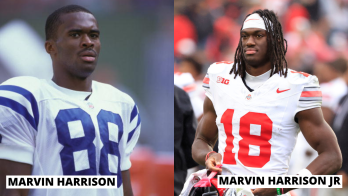It can be difficult for a young boy to process and handle the traumatic impact of abuse. The Research and Education Unit on Gendered Violence has found many recurring themes in men who were abused as a child.
- Feeling unworthy to be a man
- Need to prove themselves sexually
- Feelings of intense anger
- Use of alcohol and drugs
READ: Types Of Abuse You May Have Overlooked
Each theme listed above describes an approach to deal with the pain. Abuse takes away a young boy’s innocence, safety and ability to trust the world, especially if the abuser is someone of importance, like a parent, coach or family member.
Often times people will say to the abused person that he should have said something to someone or done something about the abuse. In reality, disclosing about one’s abuse can be very difficult.
Many men might not disclose because of the fear of what will happen if they do (will that person he cares about be taken away or will they be punished), a threat given by the abuser (“if you tell someone about what happened I will hurt you or a family member”), thinking that they will not be believed (the abuser has more clout in the family or the family thinks the victim is lying), and that they won’t be seen as man enough in the eyes of others if they confess about the abuse (thinking that being abused takes away his manhood, toughness and sexuality).
Life After Abuse
Even though abuse can be extremely traumatic and have a lifelong impact on the abused person, healing is possible. It is possible for abused boys to become healed men and many victims have been able to experience a life full of fulfillment and success after abuse.
READ: Black Elementary School-Aged Suicide On The Rise
Many men use the power of their faith to help them heal, while others use therapy, supportive friends and families. Most men use a combination of faith, therapy, and a supportive network. Healing for most abused men is not an overnight process. There are many steps towards healing.
STEP 1: Admission
The rule to overcoming most things starts with admitting that there is a problem. Admitting that one was abused can be very difficult because it involves remembering what happened to you, which can feel just as painful as when it actually occurred, but is necessary for the healing process.
STEP 2: Seek help
As one goes through the healing process, the next step is to connect with someone, such as a therapist or spiritual counselor who works with childhood abuse. Even though you admitted that you were abused to yourself, it could take some time before you feel comfortable sharing the details with your counselor. Because trust was taken away from you as a victim, it will be important to build trust with the person helping you. Establishing trust and safety takes time.
STEP 3: Fight negative self-talk
Throughout the healing process it is important to accept that the abuse was not your fault. This means battling the thoughts in your head that try to tell you that you could have prevented the abuse, fought the abuser or that you should have told someone sooner than you did. As a result of the abuse, you could have a lot of negative thoughts about yourself and your abilities. The healing process includes attacking the negative thoughts and replacing them with thoughts about your strength, skills and courage.
READ: Why Are Suicides Increasing Among Young Black Boys?
If you can identify with the information or the story and would like to receive help, seek out a counselor and call 1-800-656-4673 (HOPE), the Rape Abuse & Incest National Network for help.
*Name has been altered to protect confidentiality.
 Dr. George James, LMFT is a staff therapist and an AAMFT-approved supervisor at Council For Relationships. In addition, Dr. James is the Program Director for the Couple & Family Therapy Program at Thomas Jefferson University. Dr. James is president and CEO of George Talks, LLC, a communication and consulting company. Dr. James is a nationally recognized speaker, seminar presenter and lecturer on various topics. Dr. James has taught, presented, spoken and consulted with multiple businesses, organizations, universities and places of faith. Visit his website www.GeorgeTalks.com.
Dr. George James, LMFT is a staff therapist and an AAMFT-approved supervisor at Council For Relationships. In addition, Dr. James is the Program Director for the Couple & Family Therapy Program at Thomas Jefferson University. Dr. James is president and CEO of George Talks, LLC, a communication and consulting company. Dr. James is a nationally recognized speaker, seminar presenter and lecturer on various topics. Dr. James has taught, presented, spoken and consulted with multiple businesses, organizations, universities and places of faith. Visit his website www.GeorgeTalks.com.
Growing From Abused Boys To Healed Men was originally published on blackdoctor.org











